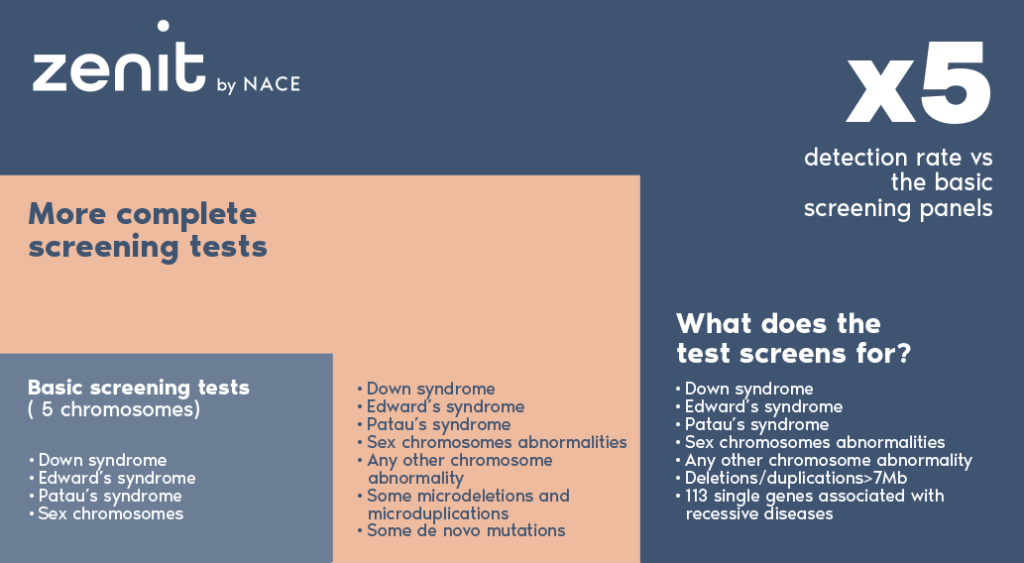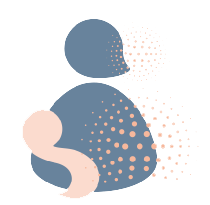Zenit by Nace
Approximately 1 in 80 pregnancies may be affected by one of the genetic conditions screened by the new test Zenit.
Zenit represents a redefinition of the current concept of prenatal screening since it analyses a comprehensive battery of clinical conditions relevant to the well-being of the future baby. This will give a greater peace of mind for the patient.
Zenit offers a new added value to prenatalrisk assessment, non-contemplated with the current approaches.
- Besides assessing the risk of chromosome aneuploidies in the foetus, Zenit screens for 112
single gene disorders of moderate to severe phenotypes with significant impact on the quality of life.
- Increases the detection rate by a factor of five compared to other basic screening tests.
- Increases the detection rate by a factor of three compared to the most complete non-
invasive prenatal test.

Zenit by Nace offers the most complete clinical approach for:
- Cytogenetic conditions screening: Screens for whole aneuploidies in all chromosomes and
deletions/duplications with a resolution comparable to the karyotype test. - Inherited mutations screening: Evaluates the risk of transmission of more than 100 recessive
conditions. A Gene panel recommended by the American College of Medical genetics and
genomics (ACMG).
How is it the procedure?
















